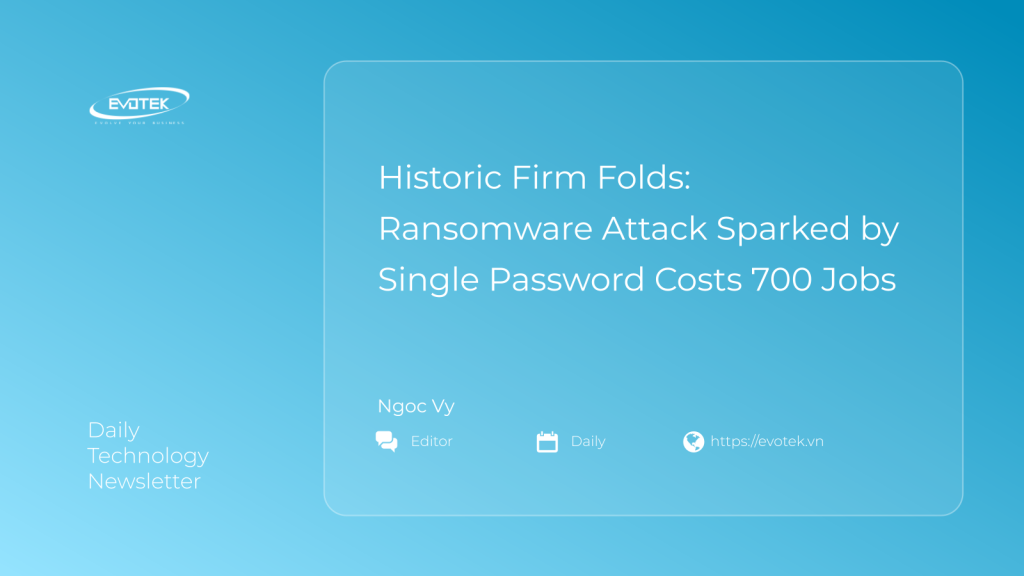A venerable UK-based transportation company, Knights of Old (KNP), with a 158-year legacy, has been forced to cease operations following a devastating ransomware attack. This cybersecurity incident has resulted in approximately 500 trucks being taken off the road and the loss of 700 jobs, attributing the collapse to the demands of the notorious ‘Akira’ cybercriminal group.
The Achilles’ Heel: A Single Weak Password
Investigations reveal that the cyberattackers gained unauthorized access to KNP’s internal systems through a surprisingly simple vulnerability: an employee’s weak password. It is believed that this password was so easily guessed that it served as the critical entry point for the internet-connected criminals. Once inside, the hackers swiftly encrypted and locked KNP’s operational data, rendering the company’s vital information inaccessible.
The attackers left a chilling ransom note, stating, “If you’re reading this it means the internal infrastructure of your company is fully or partially dead… Let’s keep all the tears and resentment to ourselves and try to build a constructive dialogue.”
Unpayable Demands and Total Devastation
In the wake of the breach, KNP’s cyber insurance provider, Solace Global, dispatched a “cybercrisis” team to assess the damage. According to Solace, the team quickly determined a worst-case scenario: all of KNP’s data had been encrypted, and crucially, all servers, backups, and disaster recovery systems had been compromised and destroyed. Every endpoint within their network was also affected.
A specialist firm was brought in to evaluate the hackers’ financial demands. The estimated ransom sum could have been as high as £5 million (approximately $6.74 million). This figure was well beyond KNP’s financial capacity, making the demanded sum utterly unpayable and ultimately sealing the company’s fate.
Urgent Calls for Improved Cybersecurity Hygiene
This incident underscores the escalating threat of ransomware, which poses a significant challenge to businesses worldwide. Representatives from the UK government’s National Cyber Security Centre (NCSC) have highlighted the increasing frequency of such attacks, where criminals directly extort money, impacting economic stability and job security.
Research suggests that typical ransomware demands for UK companies can hover around £4 million (roughly $5.4 million), indicating that KNP’s experience was not an isolated outlier in terms of the scale of the financial demand. This highlights the substantial financial risk businesses face from digital threats.
In response to such devastating events, there are growing calls for enhanced national cybersecurity strategies. Proposed proactive measures include potentially banning public bodies from paying ransoms and mandating private companies to report any ransom demands to the government. Furthermore, the importance of regular, independent cyber-audits is being emphasized to ensure that all companies maintain a minimum standard of cybersecurity hygiene and resilience against sophisticated digital attacks. The Knights of Old collapse serves as a stark reminder that in the digital age, prevention through robust cybersecurity practices is paramount.

 日本語
日本語 한국어
한국어 Tiếng Việt
Tiếng Việt 简体中文
简体中文